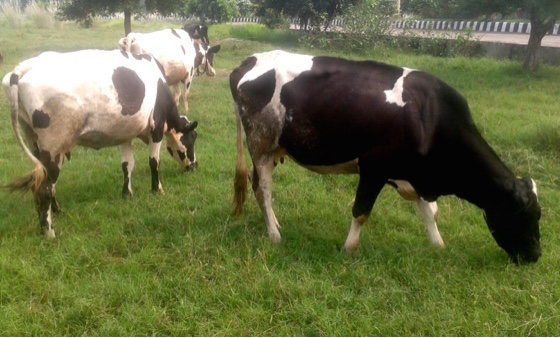-
About
- Our Work
- Get Involved
- Stay Updated
Prospects of Livestock Farming For Unemployed Youth

Human civilization has evolved along with animals. Animals being an integral part of environment has become an integral part of humans and humanity. Human race depends upon animals for nutrition, security, recreation, transportation, drought work, clothing fibre, etc.
Nowadays, livestock rearing and husbandry practices have been greatly improved. Small farmers related to livestock farming are planning to go larger and possess large flock or herd size, as they are well aware of the good management and animal husbandry procedures. Although a great proportion of the youth remains unemployed, there is strong need to employ them and thus come up with need-based livestock rearing. According to a report by International Labour Organization (ILO), almost 43% of the global youth labour force is still unemployed or working yet living in poverty. This work force can be employed and can be made self-sufficient in income generation by pursuing livestock farming. Yet another report by ILO states that, 31% youth of low income countries have no educational qualifications at all. Therefore, the need arises for capacity building of unemployed youth and hence promoting livestock farming amongst them
With very simple and easy trainings related to livestock farming, youth can be trained to undertake livestock farming. Dairy farming and poultry farming are most popular amongst circles of livestock farmers. But, both dairy and poultry require high initial amount for start-ups, which can be procured by opting for loan from the respective governments of the countries. The governments are providing loan facilities at subsidized rates for the youth to start-up any livestock related farming. On the other hand, pig farming or piggeries can be started with minimal expenses. Pigs are very prolific in nature and may give 8-12 piglets in one farrowing. Although pig farming is a taboo in some societies but for the others, it is a very useful option.
As far as sheep and goat farming is concerned, they can be reared efficiently if a person has a grazing land. Sheep and goats can graze on pastures and can fulfil their nutritional demand. They can also be reared by feeding non-conventional feeds as discussed in my previous blogs. Their litter size varies from 1-3 and gestation period is low and in a year, 2-3 crops of young ones can be obtained. Goats on the other hand can be reared for milk and chevon. Goat milk sustains the daily milk requirements and chevon at the end fetches high amounts to the farmer. Unemployed youth can build their own stud farms (equine or horse farm). They can keep horses either for recreation purposes or transportation purposes and unemployed youth can generate their livelihood by equine rearing. Alternate poultry farming like emu farming, turkey farming, guinea fowl farming, quail farming, are very prospective for the success of unemployed youth.
The package of practices required for the same can be obtained from me if one is interested in livestock farming. Further, I also want to recommend entrepreneurial ventures related to livestock farming for unemployed youth. By becoming a livestock entrepreneur, an entrepreneur not only provide source of livelihood to himself but also to others who will get recruited in the said enterprise. Any youth can start his own dairy and allied services (butter, skimmed milk, evaporated milk, milk powders, clarified butter, dairy equipments and dairy machines, etc.) enterprise, poultry and allied services (breeder farms, hatchery units, feed mills, pharmaceuticals, poultry equipments and machines, etc.) enterprise, enterprise related to various by-products from the livestock industry like wool, fibre, skin, hides, hairs, hooves, horns, bones, etc.
Livestock farming avails the youth with self employment and income generation as high as they desire according to the time they devote to their work. Further, the unemployed youth can develop themselves as livestock entrepreneurs. The things they require for the purpose are trainings about the specific livestock which they want to rear and the money and these trainings can be obtained from Farm Science Centres, State Agricultural and Veterinary Sciences Universities, Animal Husbandry Departments. The money required can be obtained from the Regional Rural Banks and other banks for successful livestock farming and thus mitigating unemployment.
About the author
Related Posts
Comments
No comments made yet. Be the first to submit a commentBy accepting you will be accessing a service provided by a third-party external to https://archive.ypard.net/
Get in touch
Email: [email protected]
YPARD Global Coordination UnitHosted by AGRIDEA and the Czech University of Life Sciences Prague
Lausanne, Switzerland and Prague, Czech Republic - Our Work

